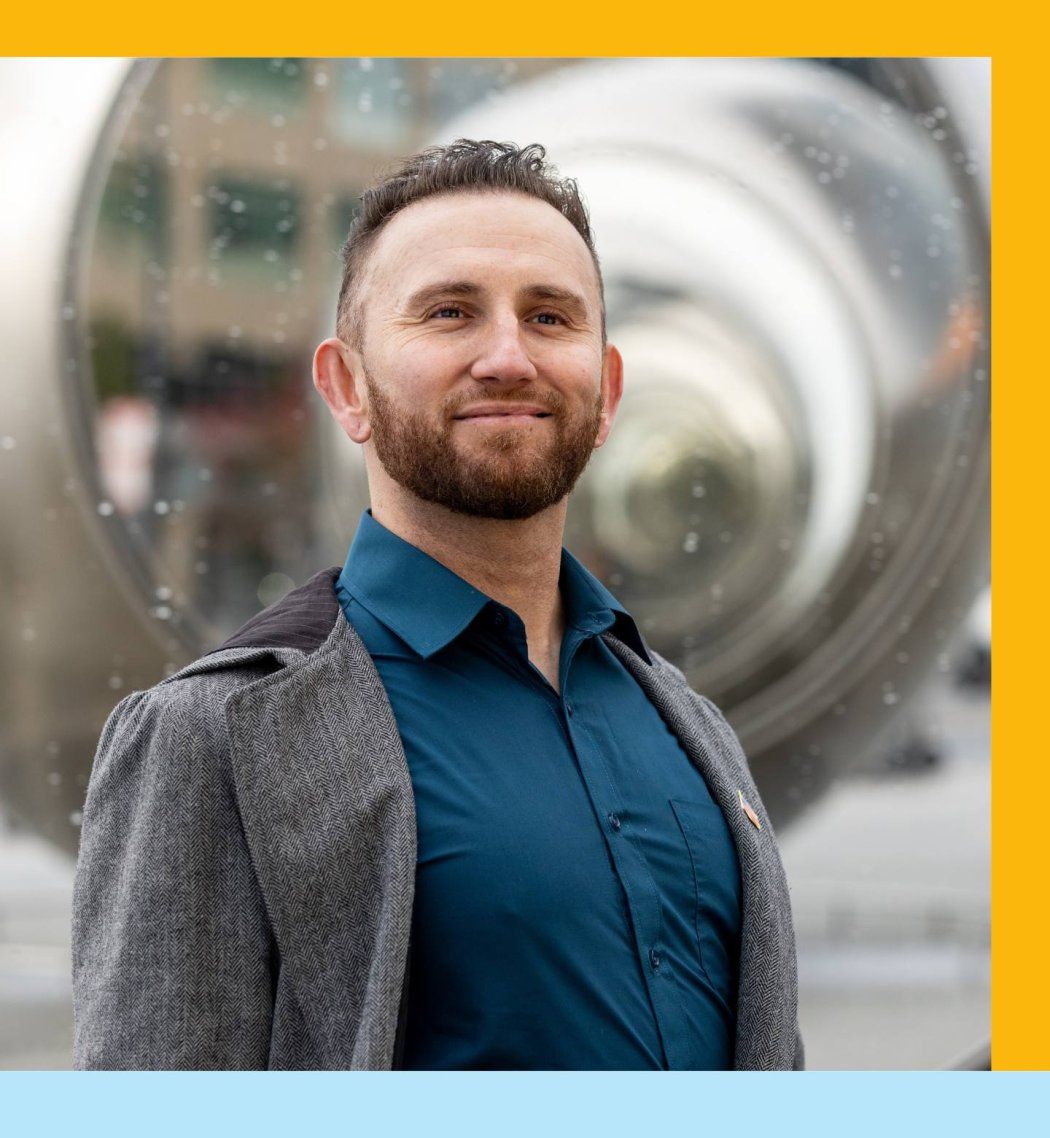This is part of a UC San Francisco series to promote greater awareness and understanding of gender identity and the use of a person’s lived name to foster acceptance, inclusion and belonging. Explore the series
How does the Gender Recognition and Lived Name Policy affect you personally? Or how do you imagine or hope it might affect you?
As a digital renaissance producer currently working in Brand Strategy, User Experience, and Interactivity within the Office of Communication, the Gender Recognition and Lived Name Policy is more than just a procedural change; it’s a beacon of respect and acknowledgment.
My mission has always been to promote and elevate the work of Queer artists of color, and this policy aligns perfectly with my values. It ensures that individuals like me, who have been advocating for underrepresented voices, are seen and respected for who we truly are. This policy would personally affect me by providing a more inclusive environment where the chosen name and identity of my co-workers are honored, reducing the burden of constant misidentification.
Philosophers like Talia Bettcher and Jacob Hale have emphasized the importance of validating transgender identities, and this policy is a step towards that goal. It would allow me to be hopeful that we are moving forward as an institution and country prioritizing fluid identities. Identity is fluid, whether it’s race, gender, or sexuality – the spectrum is real and constantly evolving as we evolve.
Ultimately, this policy could contribute to a more supportive and affirming professional environment, allowing me to bring my full he/they self to my creative and professional endeavors.

“Identity is fluid, whether it’s race, gender, or sexuality – the spectrum is real and constantly evolving as we evolve.”

“Identity is fluid, whether it’s race, gender, or sexuality – the spectrum is real and constantly evolving as we evolve.”
What’s one thing you would like people to know or understand about you and your experience?
One thing I would like people to understand about my experience is the intricate and multifaceted nature of living within the Queer community of color.
It’s about the continuous journey of advocating for others who don’t have the passing cisgender privileges that I do, or the ability to communicate as effectively. People are limited within the combined fabric of their own marginalization and that of a larger infrastructure perpetuated from our histories. My work as founder of the Latina/o Queer Arts and Film Festival and indie documentary, “Gay Latino LA: Coming of Age,” are efforts driven by a deep-seated need to create spaces where all voices are heard and celebrated. Trans philosophers like Andrea Pitts and Robin Dembroff have illuminated the complexities of our experiences, underscoring that our identities are rich and varied.
Understanding this can foster greater empathy and support, recognizing that my identity and my work are deeply interwoven and not merely political statements. Now, as a Digital Media Producer at UCSF, I continue this mission by designing user experiences and brand expressions that represent diverse voices within internal digital channels. My master’s thesis explored the intersection of digital identity and activism, underscoring how trans-queer people of color use digital networks to mobilize, connect and advocate for their communities.
This digital intersectionality, expands the traditional understanding of identity and activism, allowing for a more inclusive and dynamic approach to social justice.
What’s something you wish more people did when getting to know you, especially at work?
In the vibrant, collaborative world of digital communications, I wish more people took the time to genuinely connect in a world of ambiguity, uncertainty, fear of judgment, fear of saying the wrong thing or overall being tired of being corrected by militant activists.
Building an inclusive environment requires more than just surface-level engagement; it demands a sincere effort to learn about the diverse experiences of transgender queer individuals. If my son wanted to change his identity one day, I would be proud to say that UCSF supports progressive ideologies and assists in guiding his journey. Philosophers like Perry Zurn and Mel Chen have stressed the importance of creating spaces where trans voices are not only heard but also respected. By showing genuine interest in my work, such as my efforts with Bamby Salcedo of the TransLatin@ Coalition and my role as a Digital Media Producer at UCSF, colleagues can help foster a supportive and collaborative workplace.
Simple acts like using correct pronouns, being mindful of microaggressions, and showing a willingness to engage with my work and identity meaningfully can make a significant difference. This would enable me to continue my mission of promoting Queer artists of color with the respect and support I, and many others, deserve.
Acknowledging and integrating the lived experiences of transgender individuals enriches the collective understanding and fosters a more inclusive culture.
Cultivating a UCSF culture of belonging where we all can thrive.
Join the conversation at UCSF.
Gender Recognition and Lived Name Policy
UCSF is implementing the UC Presidential Policy on Gender Recognition and Lived Name to ensure that all employees, learners, patients and affiliates are identified by their accurate gender identity and lived name.
Change Your Name and DATA
Faculty, staff, learners, affiliates and alumni should have the opportunity to identify by their accurate gender identity and lived name. Learn how to change or update your name, gender marker and sexual orientation and take training.
BE AN ALLY AND ADVOCATE
The UCSF Lesbian, Gay, Bisexual and Transgender Resource Center has several programming initiatives that promote the inclusivity of our identities, including Pronouns Matter and UCSF Pride Pin Pledge.
